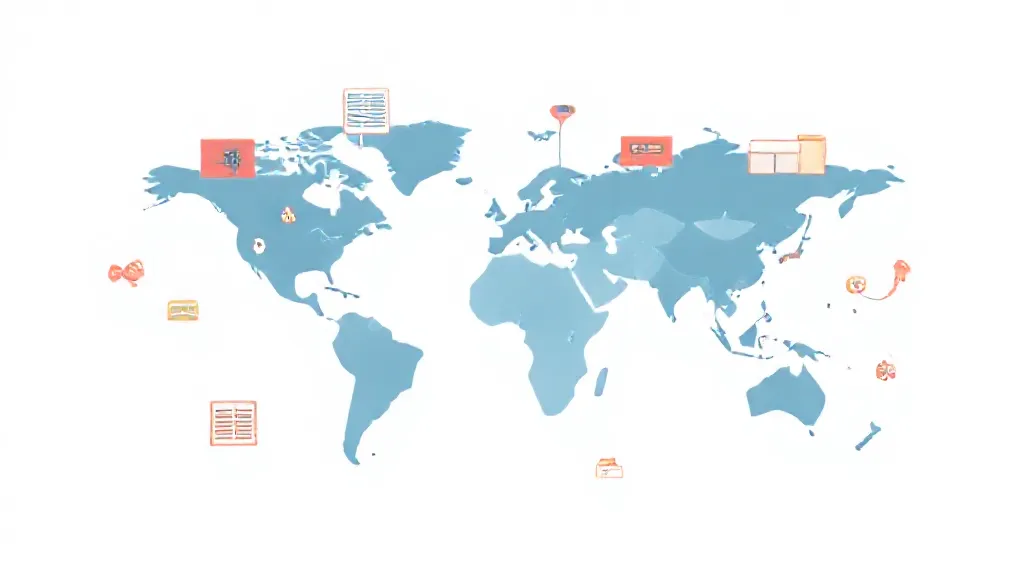Expanding globally is a significant ambition for many businesses, yet it comes with a unique set of challenges that can impact success. Companies must navigate various hurdles, including cultural differences, regulatory environments, and economic factors. Understanding these challenges is crucial for any organization considering international growth.
Cultural Differences and Adaptation
One of the foremost challenges in global expansion is addressing cultural differences. Every market has its own set of values, beliefs, and consumer behaviors that can greatly influence purchasing decisions. For instance, a marketing strategy that works well in the United States may not resonate with consumers in Japan.
Companies must invest in market research to understand local customs and preferences, adapting their products and marketing to align with cultural expectations. Failure to do so can lead to misunderstandings and a lack of acceptance in the new market.
Regulatory and Legal Compliance
Navigating the regulatory landscape is another significant hurdle for businesses looking to expand internationally.
Each country has its own set of laws governing business operations, including taxation, labor laws, and environmental regulations. For example, companies entering the European Union must comply with strict data protection regulations under the General Data Protection Regulation (GDPR). Understanding and adhering to these regulations is essential to avoid legal penalties and ensure smooth operations in the new market.
Economic Variability and Market Stability
Economic conditions can vary dramatically from one country to another, posing risks for businesses expanding globally. Factors such as inflation rates, currency fluctuations, and overall market stability can impact profitability. For instance, a sudden economic downturn in a target market can lead to decreased consumer spending, affecting sales forecasts.
Companies must conduct thorough economic analyses and consider strategies such as currency hedging to mitigate these risks.
Supply Chain Management and Logistics
Establishing an efficient supply chain is critical when entering new markets. Global expansion often involves sourcing materials from different countries and managing logistics across borders.
This complexity can lead to increased costs and delays if not managed properly. For example, a company may face challenges in shipping products due to varying customs regulations or transportation infrastructure quality. To overcome these challenges, businesses should develop robust supply chain strategies and establish reliable partnerships with local suppliers and logistics providers.
Competition and Market Saturation
Entering a new market often means facing established local competitors who understand the market landscape better. These competitors may have loyal customer bases and established distribution channels, making it difficult for new entrants to gain a foothold. To succeed, businesses must identify their unique value propositions and develop competitive strategies that differentiate them from existing players.
Conducting a thorough competitive analysis can provide insights into market dynamics and potential opportunities for growth.
Human Resources and Talent Acquisition
Expanding globally also presents challenges in human resources and talent acquisition. Finding and retaining skilled employees in a foreign market can be difficult, particularly if there are language barriers or cultural differences in workplace expectations.
Companies must consider local labor laws, compensation standards, and work culture when developing their staffing strategies. Additionally, training programs may be necessary to ensure that employees are aligned with the company's values and goals.
Technological Adaptation and Infrastructure
The technological landscape can differ significantly across countries, affecting how businesses operate.
Companies must assess the technological infrastructure in their target markets to ensure they can support their business operations effectively. For instance, internet penetration rates, mobile payment systems, and e-commerce adoption can vary widely. Businesses may need to invest in local technology solutions or adapt their existing platforms to cater to the technological preferences of local consumers.
Long-Term Commitment and Strategic Planning
Finally, companies must approach global expansion with a long-term commitment and strategic planning. Success in international markets often requires sustained efforts and resources over time. Businesses should develop comprehensive market entry strategies, including phased rollouts and continuous evaluation of performance metrics.
Establishing a presence in a new market is not just about immediate sales; it involves building brand recognition and customer loyalty, which can take time to achieve.
In conclusion, while the challenges of expanding globally can be daunting, they are not insurmountable. By understanding cultural nuances, navigating regulatory environments, managing economic risks, and developing effective strategies, businesses can successfully enter and thrive in international markets.
Embracing these complexities with a proactive approach will ultimately lead to sustainable growth and success in the global marketplace.
